[vc_row][vc_column width="1/1"][vc_column_text][printfriendly]
By Ljudmila Petrovic
 The gym I am a member at recently had a free personal training session. I took the chance because, well, it’s free. It started off with me getting weighed both for my BMI and my body fat and a discussion with the personal trainer about how to get both of those down, about coming to the gym more often, about having a meal plan—under the assumption that those should be everyone’s goals.
The gym I am a member at recently had a free personal training session. I took the chance because, well, it’s free. It started off with me getting weighed both for my BMI and my body fat and a discussion with the personal trainer about how to get both of those down, about coming to the gym more often, about having a meal plan—under the assumption that those should be everyone’s goals.
I’ve been in recovery for about six years now (with a few hiccups along the way, I’ll admit) and even though I have made leaps and bounds, this was nonetheless a triggering experience, as I imagine it would be for most people in recovery.
I had to remind myself that I have been there: I have had low BMI and low body fat, I have spent hours a day at the gym, and I have been on a self-imposed “meal plan” (if you can call it that). And I was miserable. I have never felt more isolated, more depressed, or more hopeless.
I had to remind myself that a lot of the “health” industry is a business, that people feeling bad about themselves = cash, and that it disregards the fact that health may mean different things to different people. From the “clean eating” trend—which is not unlike the restrictions of an eating disorder—to “Fitspo” (which ask “do you really want that cookie?” or “nothing tastes as good as being fit feels” to a backdrop of six pack abs and muscular thighs), we live in a world where billion dollar industries are fueled by our insecurities and where disordered relationships with our bodies are the norm. The promise of “health” is sold to us at an elevated price, be that CrossFit sessions, boxed water, overpriced Whole Foods asparagus, or the various types of infomercial diet supplements that promise they’ll burn the fat right off.
But health looks different for everyone. It may look like drinking protein shakes and hitting a CrossFit class, but it may also be spiritual or mental health, it may be taking a day off, it may be going for a walk, or it may be writing in a journal or listening to music. Health has nothing to do with what your body looks like, and more to do with how you feel.
If you’re in recovery, your “before” and “after” may not look like the “from fat to fit” Biggest Loser-type pictures you see plastered all over gyms and health clubs. Depending on the nature of your eating disorder, you may have gained weight, lost weight, or stayed the same weight. This is in no way an indicator of your health or your recovery.
For me, the “before” was restriction, isolation, compulsive hours spent on the treadmill, watching those little red numbers climb. The “before” is the feeling of cold tiles of the kitchen and bathroom floors on my skin. The “before” is missing holiday parties and birthdays. The “before” is having an absolute meltdown because I ate an “unsafe” food. The “before” is being exhausted all the time but not being able to sleep because I felt the cold in my bones no matter how many layers I wore. The “before” is waking up in tears because I had eaten a burger in my dream.
After six years of recovery, I have not suddenly reached ultimate 24/7 body acceptance and positivity, but that’s okay and I am proud of what my “after” is. My “after” is going to the gym or for a run when I feel like it and when my schedule allows it, and staying until I feel good. My “after” is trying to eat as well as I can within the constraints of my schedule and budget, but being in on the wings and nachos with friends, or saying yes to dessert. My “after” may not be as exciting or eventful as the photo of the laughing person who has dropped the pounds through personal training, but I have worked just as hard, I have persevered just as much, and I have come to a place that I never would have imagined when I was in the depths of my illness. Your “after” is probably different from mine, your recovery probably looks different, and that’s okay.
So, before you buy into the “health” industry’s messages, remember what health means to YOU. Remember that “clean eating” may not be what you need after years of restricting and/or bingeing and purging. Going to the gym more (or at all) may not be what you need after years of compulsive exercise. Before you buy into the messages of what health is supposed to look like, remember YOUR before and after. Remember YOUR truth.[/vc_column_text][/vc_column][/vc_row][vc_row][vc_column width="1/1"][vc_empty_space height="32px"][dt_divider style="thin"][vc_column_text]
Ljudmila graduated from SFU, where she studied psychology and gender studies. She lives in Vancouver, BC and is doing her MA in counselling psychology, with the goal of doing women-centred therapy.
[/vc_column_text][/vc_column][/vc_row]
[vc_row][vc_column width="1/1"][vc_column_text][printfriendly]
By Angela Inglis
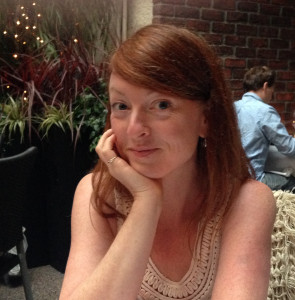
In August, I attended Looking Glass Camp as a Cabin Leader. It was my first time at camp. I don't mean that it was my first time at Looking Glass Camp or my first time at camp as an adult. It was my first time at camp ever.
I never had the chance to go to camp as a kid and even if I'd had the chance, I don't think I would have wanted to go. I've always been a bit of a loner and the idea of doing things in groups… well, I get a little uncomfortable just thinking about it.
Somehow, I thought that attending camp as a cabin leader would be different, though; easy. It didn't occur to me that I might experience discomfort as an adult for the same reasons I didn't really want to go to camp as a kid: because sharing small spaces with new people and doing unfamiliar activities with a group of strangers can be challenging.
But what I learned at camp was that taking on this challenge was worthwhile.
Here's why….
I knew we were going to do a number of outdoor activities that I'd never tried; activities like rock climbing (on a climbing wall) and high and low ropes courses (click here to see what these look like). As an academic/artsy type, I was a little intimidated by this idea but since I'm a fairly confident person, I figured I could manage it. Furthermore, I had a secret hope that I might be able to get out of the more physically challenging activities.
What actually happened when we did the low ropes course on day two surprised me, though. I found myself inspired by those who courageously went first and was excited to try it myself and see what I could do.
The low rope was set up between two posts, like a tightrope just a few feet above the ground. The idea was to walk across the rope while using a second rope at chest-level to help with balance. The other campers were lined up on either side, not interfering but ready to catch you if you fell. Our activity leader, Laura, told us we could ask the group for anything we needed when it was our turn. So I asked the group to call out encouragement as though I were an infant taking my first steps; because that is how I felt: like a small child, both excited and afraid of what I was about to try for the first time.
The experience was fascinating. I felt my body responding to the challenge automatically; it knew what to do even if I didn't know, consciously, how to direct it. Constant verbal encouragement was called out from smiling faces on both sides; all of them with their hands held up, ready to catch me if I fell. The effect was exhilarating.
However, the feelings of success and achievement I got from my experience with the low ropes left me unprepared for what I'd feel on day three. After arriving with my group at the high ropes course and looking over the apparatus, concern and worry started to bubble up into my awareness. When asked which one I'd like to try, I looked around at the various activities and wondered which one might be the easiest. I said I'd let others go first. Some seemed unafraid; they'd done things like this before. Others were like me, inexperienced and afraid but trying anyway. I watched, in awe of them all for their courage as they tackled these physically challenging activities.
Finally, I was asked directly if I wanted to climb the rope wall. I had watched another camper who'd never done it before and she'd made it successfully to the top. It was encouraging to watch but I was still doubtful of my ability to do the same. When I paused and listened inwardly, I noticed there was a story there; a voice. The voice said, "I'm not strong enough. It's too hard and I'm going to fall. It's going to hurt and I may not recover,". I realized in that moment that I didn't trust my body; I didn't trust that it could support me in the way I needed it to. And then an interesting thing happened: once I was able to see and identify that story in my mind, I recognized that I had a choice. I could believe the story and avoid the challenge or I could challenge the story and take a chance on believing that my body could support me. I chose the latter.
The climb was difficult. And scary. "Don't look down," yelled one camper and it was wise advice, I discovered, after looking down. But I made it to the top. I was exhausted but I didn't fall. I didn't hurt myself. And once again, campers calling out encouragement was one of the essential factors in my success. If they believed I could do it, it was easier for me to believe I could too.

You might think at this point that I was successful at every outdoor activity I tried but I wasn't; at least not in the way we often think of success. On day four we tried the rock climbing wall. There was an easier side and a more difficult side. Fuelled by my recent experiences, I volunteered to be the first to try the difficult side. About halfway up I had to stop. I couldn't find a handhold and my arms were exhausted from climbing the rope wall the day before. I rested for a minute or so but when I gave it another try my arms quickly tired again. I still couldn't manage to find a handhold sufficient to get any further up the wall. I realized that was where my climb was ending and asked to be lowered down.
The most interesting thing about my experience on the rock wall is that I didn't feel a single ounce of defeat or failure. I also didn't feel judged by anyone around me. I was proud of myself for trying something new and scary. I acknowledged my physical limitations and could see that, considering I was tired from climbing the rope wall the day before, I'd done my best. And that was enough.
Here's what I learned:
1. Being in group settings has its challenges but it also provides unique opportunities that help me learn and grow in ways I cannot if I always stay in my party of one
2. I am capable of doing more than I think I can; especially when I ask for and accept encouragement from others
3. Success can be measured in various ways: although I may not reach an external goal post, I feel hugely successful when I learn about myself through the process of attempting to reach a goal; I accept my real limitations and let it be enough that I found the courage to try
Thank you, Looking Glass Camp and campers for inspiring me with your courage.
[/vc_column_text][/vc_column][/vc_row][vc_row][vc_column width="1/1"][vc_empty_space height="32px"][dt_divider style="thin"][vc_column_text]
Angela is a Yoga teacher, Ayurvedic health educator, student of psychology, writer, singer, musician and performer. Her aim in life has always been the same: to try to understand her mind and heart. Angela shares her discoveries with others in hopes of supporting them in their own efforts to figure out how to live a meaningful and fulfilling life.
[/vc_column_text][/vc_column][/vc_row]
[vc_row][vc_column width="1/1"][vc_column_text][printfriendly]
By Amanda Roberts
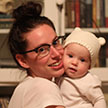
Not very long ago I was submersed in the throes of an eating disorder so rampant it nearly took my life. The question "will I ever by okay?" was forever in my mind. Although I didn't believe it at the time, the answer was yes.
Today, my life is tremendously different. I have been able to move beyond my illness and am striving for possibilities that once seemed inaccessible. I've been given the chance to exceed my expectations and move toward my dream of becoming a mental health advocate. I have this overwhelming sense of self worth, knowing that what I do from this day forward can and will have an impact on others whose lives may be settling into the darkness I once knew.
I am now in a place of peacefulness with my body. I was given a beautiful gift to house a daughter and allow her presence to change the way I view my future. Her body filled my womb and heart with the desire to step outside my illness. Her life pushed me from a place of emptiness. I appreciate every day that I have the freedom to put my energy into my schooling and my family.
Being able to study psychology and obtain a degree is powerfully rewarding. I never would have imagined the amount of attention I’d put into anything other than my illness. I'm driven by the need for more mental health advocates. Having the resources to study psychology allows me to ensure I'm one of the people that can truly make a difference in the way mental health is perceived. By actively expanding my knowledge of mental health, I hope to guide individuals to life beyond illness. It is possible to separate yourself from your illness and accept that you can achieve the dreams that are so often suppressed by insecurities.
For me, life after illness will be about changing the way our society views people with mental health issues. The fact I can admit to experiencing a huge mental health crisis and also be an academic scholar is incredibly important for ending the stigma surrounding mental health. When others who face mental health issues read this, I hope they too can believe in the possibility of liberating themselves from the constraints of their disorder.
The stigma around eating disorders cannot continue. Lives are being lost, partly because not enough people are coming forward with their stories. I'm able to study and maintain my passion for life because I feel the freedom to talk about my past struggles, to show people who also struggle that it’s okay to speak up. I hope through my schooling and accomplishments I'll be better able to create more bridges between society and those affected by mental health. I hope to draw out many new voices of recovery.
The Looking Glass Foundation scholarship has allowed me to continue pursuing my passion. Each day that I sit down to study in a very noisy, toy-filled room, I reflect on how grateful I am for the various crayon markings on my walls, for the chance to accomplish my goals alongside my daughter. My life has evolved into a chaotic, ambitious miracle. I know that life will never be an effortless journey, but that the challenges we face are what shape our identity in ways we deserve.
I have this incredible gift of life that so many of us take for granted. I no longer see my body as an empty vessel, but as one filled with literature, and strength. I see my future as a place of nourishment and contentment. I am a mother, a student, and someone who has regained the hunger for life.
[/vc_column_text][/vc_column][/vc_row]
[vc_row][vc_column width="1/1"][vc_column_text]
[dt_divider style="thin" /]
Amanda is an eating disorder survivor and the recipient of the Looking Glass Foundation's 2015 "Pursue Your Passion" scholarship. In addition to caring for her beautiful daughter Lua, Amanda will be studying Psychology at Langara College in Vancouver
[/vc_column_text][/vc_column][/vc_row]
Several years ago, Tyson Busby was the first young man to enter treatment at the Woodstone Residence on Galiano Island (now the Looking Glass Residence in Vancouver). Recently, we asked Tyson to reflect back on his experience, and to give us a man's perspective on eating disorder recovery.
LGF: You had a lot of tough experiences as a kid. Do you think the need to control or manage those emotions somehow led to the development of an eating disorder — or was it something else? I didn’t know how to properly control my emotions when I was younger and I hid them deep down inside without letting them go or talking about them. I let my emotions eat me up inside, which was a big reason my eating disorder developed. If I'd known how to deal with my emotions mentally, and had been able to express them, I don’t think I would have gone down the eating disorder path. Being able to express yourself and not hide your true feelings is a big accomplishment and a huge step towards having a successful life.
Do you remember when you first started using food to deal with the issues in your life? What was it about food and eating that made you turn to it? I think I started turning towards food around the age of 12. It was a way for me to cope with my depression. I was active as a teenager but I’d always end up binge eating at home when I didn’t feel good about myself. I don’t how or where my attachment to food started. Looking back now, I know that bingeing damaged me in many ways — but at the time it was about trying to make myself feel better.
What was it about your experiences with food and eating and weight that might have been different for you because you were a boy? There’s always pressure. It doesn’t matter if you’re a boy or a girl, simply going to school has its own pressures. Everybody wants to fit in somewhere. We’re all trying to change to fit in better, and to figure out who we are. While I was going through school, I wasn't super overweight or anything but I had some extra weight on me. I made a lot of jokes about it to the take pressure off others joking about it. When I think about it now, I was bullied about my weight but I was probably my own biggest bully. It was my own expectations for myself that ended up being destructive.
I believe a lot of eating disorders develop because of media and school pressures. TV and the Internet make you think you need to look a certain way, and that if you don’t you're going to be judged. It can create a horrible state of mind.
Looking back on your childhood and high school years, what might have prevented your eating disorder? Were there specific things that others — not just your parents, but your teachers and counsellors and friends — might have done that would have been helpful? If I had been able to express my feelings or seek help without feeling like my peers were judging me for something that wasn't my fault, my eating disorder might not have developed. I got scared and held it in. You never know if it was just something that was in the cards – something that I had to overcome in my life to grow into the person I am today.
You say that your experience at the Looking Glass Residence (formerly the Woodstone Residence) was the biggest reason you were able to get past certain points in your life and truly recover. What was it about that experience that made it so cathartic or helpful? It took me away from the life that I was living. I was able to get the time, the mental space, and the support I needed to confront my eating disorder and start my recovery journey. At an outpatient facility you have a few hours, or a day or two, where you’re great but then you're back at home with your old triggers and you're back to square one. At the Residence you’re away from it all. You have the opportunity to work through your triggers and figure them out. By not running and hiding, you take everything head-on and figure out how to get past it.
What do you think was different for you — as one of the few men treated at the residence? Or was it the same experience as it was for the girls? I was the first guy ever to go, so everything was new for me and for them. There were little things — like my bedspread having a really girly floral design — but other than changing a few things to make it more gender neutral, the treatment was the same. We suffered from the same mental health issues. They may have developed in different ways but somewhere down the line a common denominator triggered the issue.
The only difference about being a male and having an eating disorder is that people think "what's wrong with you? How could you have an eating disorder — it’s not a guy thing". I believe the main reason for that is how much the media influences how females are supposed to look and act. Even though the spotlight is on women, there are thousands of men struggling with eating disorders.
When you look back on all that you have been through, what would you say your most important discoveries have been — about yourself, EDs, and recovery? The most important discovery was that it wasn’t my fault. A lot of the traumatic stuff that happened to me in my life and the feelings I developed were because of someone else. I let it take control over me and believed that it was my fault. In recovery, I learned how to let things go. I realized that someone else’s choices are not a reflection of me. I don't have to let their choices control me.
Thinking of other boys and young men who may have similar experiences to yours or who may for other reasons develop an ED, what would you say to them? I would say you are not the only one. You don’t need to be ashamed. Don’t feel like because you’re male that you can’t come forward about having an eating disorder. Don’t be afraid to be vulnerable — like you have to conform to the stereotype of the strong silent male figure who can’t show emotions or look weak. The only way to become stronger is to work on your weaknesses. When I reached out and found the help I needed, I became a better person and got past my eating disorder. There are ways to get through it and move forward.
What would you say to the other people in those boys' and men's lives?Be there to support them. Don’t expect them to get better overnight, because it’s a work in progress everyday. There are many things that trigger eating disorders, and there’s a lot of pressure that goes with trying to recover from an eating disorder. We all need to eat to survive so the pressure is 24/7. Take a step back. Don’t push. Encourage them everyday to open up. Let them know you’re there to support them every step of the way. Don’t give up on them.
If the Looking Glass Foundation could make one lasting difference in the lives of youth at risk for EDs - and particularly for boys and men at risk — what would you like it to be?My wish is not just for men and boys, but for everyone. I would love to see the Looking Glass Foundation open a facility that helps everyone – especially those over the age of 24. Currently the Looking Glass Residence treats people between the ages of 17 and 24. Luckily, I was 24 so I just made it in. Opening something for people 24+ would change so many lives. It’s a shame that people can’t access treatment because of their age. So many more lives could be saved if there was no age restriction.
Today, you're "giving back" to those suffering with eating disorders, aren't you?Being a man who recovered from an eating disorder, I'm doing whatever I can to help others who are suffering. I hope to work more with Paul Gallant on educating folks about men and eating disorders, and to help out with his monthly men's support group.
Tyson is an eating disorder survivor, alumni of the Looking Glass Residence (formerly the Woodstone Residence) and an inspiration to those around him.
[printfriendly]
By Stacey Huget
We are everywhere. The ones who had an eating disorder. Who clawed a way through and out of our respective nightmares. And who, more often than not, keep totally mum about it.
It was nearly 15 years after pulling myself free from a 20 year stranglehold with this disease before I could say the words, admit it, put it out there: I had an eating disorder.
Readiness is a personal thing. I wasn't ready to confront other people's judgments and misperceptions, their dismissal — in all the shades and shapes I imagined it might come. I didn't want to be forever taken out of context, shackled to that dark place I'd struggled so hard and long to escape. I wasn't ready to risk being misunderstood.
When I was ready, coming out about having had an eating disorder was one of the most liberating things I've ever done.
Shame is something we hold onto. Letting go isn't easy, but it's ours to do. And the act of letting go unleashes something powerful — not just within, but out into the world as well: a kind of freedom, or space, or opportunity that wasn't there before.
Imagine if more men and women who once had an eating disorder spoke up: I had an eating disorder. I understand now that it wasn't my fault. I am not ashamed.
If, instead of biting their tongues, they said: Yeah, I beat down a wicked, slippery disease few people really understand and I went on to make a life for myself — a life I love. I feel really good about that.
If they added: Of course, I am not the eating disorder I had, nor even the strength it took to get to the other side. My story, who I am, is way bigger than that.
Imagine the effect of all these people coming out — their voices rising gently up in casual conversations at the water fountains and change rooms and line-ups of everyday. Heads held high. Whispering no more.
This coming out, this willingness to give resonance to our experience, could actually change the world — in at least three ways.
First, it could breathe new life into how we help those who are at risk for, or already in the agonizing throes of, an eating disorder. With so many voices speaking out unashamedly, we could whack a good chunk off the whole shame dynamic that keeps sufferers from coming forward for help. Instead of telling those in treatment, "recovery is possible", we could just introduce them to the evidence. Better yet, we could bump it up a notch: "Life beyond recovery is possible", and let them take its many splendored pulse themselves. Let them see that the other side of eating disorders isn't recovery, it's living.
Second, it could shake up the way society sees, thinks, and talks about this disease. So many myths busted: Here we all are — thousands of "after" shots to blow apart those blurry, ill-conceived images people have of who gets an eating disorder. Here we all are — the entrepreneurs and artists and caregivers and journalists and members of parliament and ... Here we are, ready to surprise you. Here is what recovery looks like: real people living real lives, a lot like your own. It's hard to tell us apart, isn't it?
Third, and finally, it could flip the dialogue about mental illness onto its belly — and have us talking about mental health instead. Like we do about physical health. Natural human pursuits: equally universal, shameless, valued. Where we learn from one another. Accept each other's ups and downs as if they might be our own. What a far more inclusive and realistic conversation it would be.
Yes.
When you're ready.
Coming out could be one of the most liberating things you ever do.
Oh, and call us. There's a movement brewing. More and more of us, coming out for change.
[dt_divider style="thin" /]
Stacey is The Looking Glass Foundation’s Executive Director. She lives in Vancouver, BC and is an avid jazz and opera buff, enjoys playing bridge and shooting pool, and looks forward to a day when eating disorders are something we sadly remember, as a thing of the past. You can reach Stacey at stacey@lookingglassbc.com.
[vc_row][vc_column][vc_column_text]
[dt_divider style="wide"/]

[/vc_column_text][/vc_column][/vc_row][vc_row][vc_column width="1/2"][vc_column_text]Each year, the Looking Glass Foundation awards $10,000 in scholarships to young people who have received or are currently receiving treatment for an eating disorder.
This year, the Looking Glass Foundation Scholarship Committee received so many compelling scholarship applications, all from inspiring young people with dreams for furthering their education. It truly was a difficult choice. (It was so difficult that, with the help of a generous anonymous donor, we even added an additional scholarship!) With heartfelt appreciation and best wishes for all our applicants, we are delighted to congratulate our 2015 Rise Above, Pursue Your Passion, and Persevere Scholarship Winners for 2015.[/vc_column_text][/vc_column][vc_column width="1/2"][vc_column_text css=".vc_custom_1445901247398{padding-top: 25px !important;padding-right: 25px !important;padding-bottom: 25px !important;padding-left: 25px !important;background-color: #3b3d3d !important;}"]New This Year!
Elise Skoglund Bursary - $1000
The Elise Skoglund Bursary is funded by Elise, her family and friends. It was created to honor and recognize Elise’s own triumphs and setbacks in her struggles with the disease; as well as her many contributions to the wellness of others through her involvement in the Eating Disorder peer support community. The bursary is linked to the Persevere Scholarship and is intended to provide additional financial support and recognition for individuals pursuing academic goals.[/vc_column_text][/vc_column][/vc_row][vc_row][vc_column][vc_column_text]Rise Above – In honour of the Lougheed Family, the Looking Glass Foundation awards this scholarship to someone who is making a difference through community service and leadership.
 Lucia - English, University of British Columbia
Lucia - English, University of British Columbia
"Seven years ago, at the height of my anorexia, I could not have imagined being able to give back to my community and to take leadership roles in raising awareness…Now, as I complete my education, I look forward to many new opportunities to keep fighting to make both sexual assault and eating disorders issues that we can speak openly and honestly about, with kindness and understanding."
Hillary - Counseling Psychology, University of British Columbia
"I believe that eating disorders are normative, not because they are okay, but because we live in a hyper-sexualized, appearance-oriented culture in which women’s struggle to achieve thinness is acceptable, and often rewarded. I long to see women free to be who they really are, and see their worth as something inherent within them, not something to be earned through image, or a number on a scale."[/vc_column_text][/vc_column][/vc_row][vc_row][vc_column][vc_column_text]Pursue Your Passion Scholarship - The Looking Glass Foundation awards this scholarship in recognition of someone’s passion, excitement, and enthusiasm for a goal or ideal – around which they have special aspirations for higher learning.
Danika - Health & Exercise Sciences, University of British Columbia
"No words can describe the passion I have for my work in eating disorders…this passion stems from my own experience with it at 12 years old. Eating disorders have shaped my life in many ways…they have helped me become a strong, driven individual…given me a passion for life… given my university studies a goal, and given me direction in my life and career.”
Amanda - Psychology, Langara College
"I want to devote my knowledge to re-creating a spark within people, to help them through the doubt and the dullness I once felt…I want to be a strong and knowledgeable role model for my daughter. Overcoming my illness was just the beginning. I’m alive. I have the power to lift self-doubt, to encourage change, and possibly save the life of someone you love.”[/vc_column_text][/vc_column][/vc_row][vc_row][vc_column][vc_column_text]
[/vc_column_text][/vc_column][/vc_row][vc_row][vc_column][vc_column_text]Past Scholarship Winners
2014: Sarah Ramadan, Gabriella Paniccia, Marisa Short
2013: Elise Slaughter, Bethany Young, Samantha Harrison, Nicole Brindle
2012: Nicole Sawin, Katie Fajber, Sasha Rockliffe, Melissa Quinn
2011: Lacey Elliott and Abbey Eurchuk
2010: Natalie Maxey
2009: Zornista Kaneva
2008: Nicole Bemister and Michelle Dean
2007: Sarah Banks[/vc_column_text][/vc_column][/vc_row]
By: Trixie Hennessey
What do I mean when I say “managing our emotions”, and what is the link between our emotions and the onset and maintenance of eating disorders? These days it is almost universally understood that our ability to manage or regulate our emotions contributes very positively to our mental health. Individuals who are less able to manage their emotions (particularly difficult emotions related to feelings of shame, anger, and fear) often find themselves at increased risk for a number of mental health disorders, ranging from anxiety and depression to eating disorders.
From a therapeutic perspective there is evidence that eating disordered behaviours momentarily soothe uncomfortable emotions and feelings of distress, while paradoxically leading to intense physical and emotional suffering in the long term. As a consequence, the use of eating disordered behaviours to avoid or escape particularly painful emotions and intense feelings such as shame, anger, fear, and judgment can be powerfully reinforcing in the moment. And when such behaviours are very reinforcing, we can expect to see an increase of similar behaviours in the future.
Characteristically, individuals who are struggling with eating disorders have more difficulty making sense of and managing their emotional states, and their physical symptoms (lack of nutrition, fatigue, poor sleep habits) heighten their emotional vulnerability further and impair their capacity to manage whatever difficult emotions they are experiencing. The unfortunate result is that supportive family members and friends are less able to connect with their emotional experiences in ways that feel empathic or supportive to them. As a result, ED sufferers are left feeling even more misunderstood, invalidated, and disconnected from those around them; in many cases sufferers may begin avoiding certain social situations altogether. This negative feedback loop creates even stronger and less manageable negative emotions, and further increases that individual’s vulnerability to invalidating experiences in the future. Ultimately, those difficult feelings that began as momentary states can begin to be perceived in the mind of sufferers as permanent traits that define their sense of identity and their relationships to others.
From the earliest moments of life, our empathic connection to supportive family members and friends helps to calm the storm of difficult feelings and emotions that we experience from time to time. We are social beings and our need for empathy and connection to others can feel as important as the air we breathe. We communicate with others through our emotions, and our ability to shift emotions based on the social context allows us to connect meaningfully with others. Our emotions tell us what is important or meaningful, and help us cope with change.
It is for these reasons that treatments such as DBT (dialectical-behavioural therapy) focus on supporting individuals to better regulate their emotional states and to tolerate intense emotions through the use of more healthy and adaptive strategies. Treatments such as Emotion Focused Therapy and mindfulness-based approaches also support individuals to more clearly identify and label their emotions, integrate them in their personal narratives, and express them in appropriate ways. By encouraging individuals to adopt a curiously compassionate stance and the non-judgmental acceptance of emotions as neither good nor bad, they can begin to shift from emotional avoidance to acceptance of all emotions as valid. In time they come to recognize that emotions are often fleeting, and they can give themselves permission to experience previously uncomfortable emotions such as anger or shame without becoming emotionally dysregulated. This capacity to adapt our emotional state in response to change and stress in our environment is a core feature of resilience.
As therapists we support those with eating disorders to build up those internal resources that foster a sense of competence and empowerment so that sufferers become less reliant on maladaptive ED behaviours as a means to self-soothe. In essence, individuals become better able to “feel and deal “and are more successful at matching their emotional expression to the changing stresses and demands of daily living.
[dt_divider style="thin" /]
Trixie holds a Masters of Social Work degree from the University of British Columbia- Okanagan, where she also completed post-Masters training in Neurosequential Therapy. Trixie has been part of the team at the Looking Glass Foundation since 2011. She is also a Therapeutic Consultant at Optimal Family Wellness. She lives in Vancouver, BC and loves hiking, photography, and being mom to her two children.
[printfriendly]
By Stacey Huget
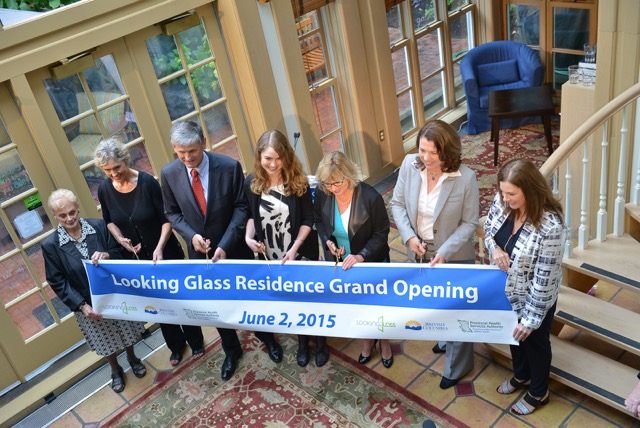 While it marked its "official" opening, the June 2nd Open House at Looking Glass Residence was also the celebration of a fourteen-year legacy of love, vision, and tenacity.
While it marked its "official" opening, the June 2nd Open House at Looking Glass Residence was also the celebration of a fourteen-year legacy of love, vision, and tenacity.
The legacy began in 2001. Community-based programs for eating disorder recovery were overburdened, hospital admissions meant long wait lists, and families seeking residential care were forced to find it outside of Canada at tremendous expense and personal sacrifice. Several families, who all shared a similarly desperate struggle to find appropriate treatment programs for their daughters, came together in frustration. Looking Glass Residence co-founder Deborah Grimm remembers it well: We looked all across Canada to find answers that would help us care for our daughter and there was only one answer, a hospital stay. We had been on that track for a year and it was clear we needed something else. And then, there it was - just across the 49th parallel, and yet unreachable. I was dumbstruck by the ridiculousness that the U.S. had centres all over the country and yet we did not have anything like it here in Canada.
That shared frustration turned to stony resolve - to establish Canada's first residential treatment program for adolescents and young people struggling with eating disorders. A non-hospital environment was the missing link for our daughter, remembers co-founder Dolores Elliott. It was too important not to come to fruition.
Actually bringing it to fruition became an uphill dream requiring more than a little tenacity. I didn't know how not to do it, remembers Deborah. My daughter was at her wits end, begging me to find an answer before there was nothing of her left. It galvanized me.
Fuelled by grit, the parents began knocking on doors, incorporated as a group, and secured a charitable number from Revenue Canada. Once we formed a society it gave us the courage to move forward, people would take us seriously, recalls Dolores. More doors kept opening after that, including that of Health Minister Colin Hansen. This made us believe in ourselves, that it was possible to achieve!
 Driving them on was their own, first-hand experience of the devastating effects of an eating disorder - not only on the sufferer, but on the families who love them. The challenges we faced creating the centre paled in comparison to how hard it was to go through the experience of my daughter's ill health, says Deborah. I wouldn't say I was only doing this work in order for someone else to not have to go through the experience I went through - but I was always aware that others may face this issue in their own family and wouldn't have to go so far away to find solutions.
Driving them on was their own, first-hand experience of the devastating effects of an eating disorder - not only on the sufferer, but on the families who love them. The challenges we faced creating the centre paled in comparison to how hard it was to go through the experience of my daughter's ill health, says Deborah. I wouldn't say I was only doing this work in order for someone else to not have to go through the experience I went through - but I was always aware that others may face this issue in their own family and wouldn't have to go so far away to find solutions.
It was a decade-long labour of love. But, working closely with medical professionals, the Government of BC, generous donors, and countless volunteers, the founders of the Looking Glass Foundation achieved their dream. In 2011, the doors opened to Canada's first residential treatment centre for young people struggling with eating disorders - the Woodstone Residence on Galiano Island. For the founders, it was a dream that took a long time to come to fruition. But then, it suddenly did become real.
For Dolores, the moment was when the Galiano Island property was rezoned and they were preparing the Woodstone facility. This may sound crazy, but when we went over to the house and cleaned out the junk, removing mirrors and dangerous materials, making up the beds, cleaning the windows ... When we brought an old donated car over as our first official set of wheels ... That was when we knew, the residents would come! Deborah remembers exactly when it was: Our first few residents had arrived and we were there helping things get settled. Our cook, Lisa, was plating the food and my heart was suddenly overwhelmed by it all. It was real. We were real. The years of striving for this were over.
 The Looking Glass Foundation relocated the Woodstone Residence to Vancouver in August 2014, renaming it Looking Glass Residence. The new location is a gorgeous 9,380 square foot home in the beautiful Shaughnessy neighbourhood – a stunning gift from the Lougheed family, stalwart supporters of the dream from its inception. The new, 14-bed Residence is a unique collaboration between the Looking Glass Foundation and the Provincial Health Services Authority (PHSA). While the PHSA manages the clinical operations of the Residence, the Looking Glass Foundation contributes integral programming enhancements and personal touches to ensure the Residence is fully responsive to the needs of sufferers, and readies them in a meaningful way to sustain a healthful life beyond their stay with us. The collaboration embodies our shared commitment to preserving and enhancing the legacy of holistic, intensive, and caring residential treatment — as originally envisioned by our founders.
The Looking Glass Foundation relocated the Woodstone Residence to Vancouver in August 2014, renaming it Looking Glass Residence. The new location is a gorgeous 9,380 square foot home in the beautiful Shaughnessy neighbourhood – a stunning gift from the Lougheed family, stalwart supporters of the dream from its inception. The new, 14-bed Residence is a unique collaboration between the Looking Glass Foundation and the Provincial Health Services Authority (PHSA). While the PHSA manages the clinical operations of the Residence, the Looking Glass Foundation contributes integral programming enhancements and personal touches to ensure the Residence is fully responsive to the needs of sufferers, and readies them in a meaningful way to sustain a healthful life beyond their stay with us. The collaboration embodies our shared commitment to preserving and enhancing the legacy of holistic, intensive, and caring residential treatment — as originally envisioned by our founders.
We had dreamed of a place that was a beautiful, restful setting, says Deborah. A place that made residents feel safe enough to consider taking a chance on themselves. It needed to be away from the distractions of the outside world and the house we found in Vancouver, while close to amenities, feels like it is a million miles away from anything else.
The physical space is only part of what makes Looking Glass Residence special. The employees are kind, compassionate and caring, and this is what I dreamed it should be, says Dolores. My dream going forward would be that we could offer family therapy similar to what we experienced with our daughters, and beyond that - school programs that will decrease number of suffers.
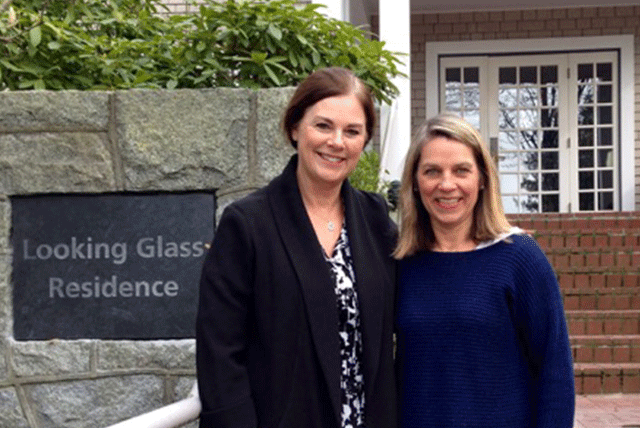 One of my dreams is that the residence might become a hub of learning for all disciplines, adds Deborah. That the programming would continue to evolve in such meaningful ways that the learning that takes place for the staff, the residents and any students that come through, would become a standard of excellence of care for the whole country.
One of my dreams is that the residence might become a hub of learning for all disciplines, adds Deborah. That the programming would continue to evolve in such meaningful ways that the learning that takes place for the staff, the residents and any students that come through, would become a standard of excellence of care for the whole country.
The legacy of Woodstone on Galiano Island, of what is now the Vancouver-based Looking Glass Residence, is not only that of the founding families or of the many volunteers and staff members over the years - but also of the countless donors whose generousity and belief made it possible. Everyone has played an important role in our success. I was the Treasurer for the first 5 or so years and any gift, large or small, meant so much to me, says Dolores. Their willingness to help still overwhelms me each and every day, adds Deborah. I feel so honoured by their trust, by their open hearts. Their belief gives us strength.
The Looking Glass Foundation extends its heartfelt thanks to all of the many individuals and organizations, past and present, who have breathed life into Looking Glass Residence, and the legacy it represents. As we celebrate this milestone in our history, all of you are in our hearts - the founding families, the generous donors and volunteers, our committed Board members. This is what our combined love, vision, and tenacity has made possible. This is the lifeblood of the Looking Glass community today, and the bedrock on which all of our other programming -- prevention and early intervention, support and recovery, aftercare and relapse prevention -- rests.
[dt_divider style="thin" /]
Stacey is The Looking Glass Foundation’s Executive Director. She lives in Vancouver, BC and is an avid jazz and opera buff, enjoys playing bridge and shooting pool, and looks forward to a day when eating disorders are something we sadly remember, as a thing of the past. You can reach Stacey at stacey@lookingglassbc.com.
By: Trixie Hennessey
Q: My husband and I have two daughters. Why did one end up with an eating disorder?
A: Two girls grow up together in the same household as sisters; one goes on to develop an eating disorder while the other does not. In the aftermath, their family struggles to understand what may have led to the onset of this complex illness for one of their own. In quiet moments, parents worry that they may have contributed to their child’s eating disorder; they carry feelings of guilt and shame, sensing the unspoken judgment of others who lack sufficient understanding or the empathy to meet them in their anguish. As a therapist, these questions become important when feelings of hopelessness, shame, and despair become debilitating for parents and undermine their capacity for self-compassion and confident, empathic care-taking.
Going back to our question of why one daughter ended up with an eating disorder and the other did not, we should state from the beginning that parents do not cause eating disorders in their children. Shared genes and parenting styles do not equal shared destinies for children as far as their mental health is concerned. In our example, each daughter has innumerable experiences that confer resilience or impose risk. Each daughter has shared experiences that lead to very different outcomes based on the salience of the experience to each individual.
For example, your two daughters might share a particularly traumatic event but experience it in vastly different ways, as each person focuses on particular features while practically ignoring the other elements that are less meaningful to them. As a result, one daughter may experience long-lasting emotional disturbance while the other daughter, although emotionally impacted, appears to demonstrate greater resilience and adaptability. This scenario plays out in uncounted ways large and small, with each individual making sense of their experiences based on their unique temperament and perspective. Therapists say that trauma does not live in the event, but rather resides in the central nervous system of the person experiencing the traumatic event. Your daughters may perceive an event in radically different way, with one experiencing terror while the other has a fearful experience that does not linger.
Innumerable factors contribute to the early onset of eating disorders, but it is next to impossible to know in advance what those precipitating and perpetuating factors will be for any given individual. An experience of adversity may build resilience in one individual while at the same time causing hardship for another individual, making it difficult in your case to establish what may have caused one daughter to manifest an eating disorder while the other daughter with somewhat different risk and resilience factors did not. Some individuals experience emotional wounds more deeply, have less shame resilience, or tend to be more of a perfectionist. Some are more vulnerable to the perceived judgments of others, and find themselves in greater need of social acceptance. Making predictions about who might be a risk for developing an eating disorder is nearly impossible for these reasons.
After answering your question, I want to leave you with the thought that it is not as important to understand how an eating disorder develops as it is to understand how to support your loved one through an eating disorder. I would invite you to connect to community supports such as The Looking Glass Foundation or Kelty Mental Health to see what services are available to you and your daughters. Parents often share that being involved in their loved one’s treatment helps them feel more equipped to deal with the challenges that inevitably arise.
Trixie holds a Masters of Social Work degree from the University of British Columbia- Okanagan, where she also completed post-Masters training in Neurosequential Therapy. Trixie is the Looking Glass Foundation's Program Manager and has been a part of our team since 2011. She is also a Therapeutic Consultant at Optimal Family Wellness. She lives in Vancouver, BC and loves hiking, photography, and being mom to her two children.
Submit your questions about disordered eating, mental health and supporting those around you to trixie@lookingglassbc.com. Through Q&A With Trixie, she will provide general advice for informational purposes only. For other inquiries and services, please consult directly with a licensed professional.
[printfriendly]
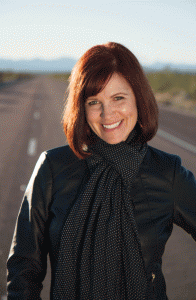 The Dark Side of the Bright Side
The Dark Side of the Bright SideBy Trixie Hennessey
When those we love are hurting we hurt right along with them, and the closer we are to them the more we resonate with their pain and suffering. We want to take their pain and hurt away, and one of the ways we often choose to do this is by talking them out of whatever painful emotion they are feeling or experiencing.
We may encourage them to “look on the bright side of things,” or reassure them that as bad as they feel, “things could be worse.” At other times we might choose to tell them how smart or pretty or kind they are, in an attempt to “fill their bucket” with wonderfulness. And although this kind of reassurance is well-intended and sensitive, it is not an empathic response. What do I mean by that?
Empathy conveys a sense that another person’s experiences and feelings are deeply understood and shared by us, and this instills trust and confidence that we can manage through difficult emotions with that person. The more accurately and non-judgmentally we reflect their feelings and emotions, the more comforted and supported they will feel.
If we focus our efforts on talking others out of their emotions or putting a positive spin on situations, we convey our discomfort with what the other person is feeling and experiencing in that moment. Not only that, but we also communicate that we would appreciate them shifting to a less distressing and easier to manage emotional state because their anguish is becoming painful for us.
When someone senses that we are unwilling to walk through their uncomfortable feelings and emotions with them, it also undermines their confidence in their own ability to deal with whatever they are experiencing. Trying to talk someone out of their upset with reassuring platitudes during these moments often provokes even greater upset, anxiety and resistance because that person has little confidence that someone else understand what they are going through.
The “look on the bright side” approach effectively denies the person their emotional experience; the implication is that certain emotions are acceptable or preferable, and other emotions are less acceptable. Fear, sadness, anger and shame are difficult emotions that many families struggle to validate, and in fact we often describe these emotions and mood states as negative. As a result, we are implicitly learning from early on that certain emotions are valid or acceptable, and other emotions are unacceptable. So, if “looking on the bright side” and providing reassurance perpetuates unhelpful patterns, how do we support someone who is struggling with difficult emotions?
We can begin by accepting (unconditionally and without judgment) whatever feelings and emotions that person is experiencing and then leaning into that discomfort by simply being in their experience with them. We can resist the urge to ‘fix’ their difficult situation or emotions for them and instead, give them the space and the opportunity to feel and experience a sense of mastery over their life and emotions. In the end, all that someone who is struggling with difficult emotions wants is to know that someone else is willing to walk alongside them in their discomfort.
In time we will become more comfortable as we learn together that emotions are not as big and scary as they seem, and that they inevitably pass. We will also come to learn that avoidance of difficult emotions tends to make the emotions bigger and gives them more power over us. We will also come to recognize and accept that our emotions provide clues to our unmet needs and the unmet needs of others. So if we avoid uncomfortable and painful emotions by numbing out or seeking distractions, we miss an opportunity to connect with someone and truly understand what unmet need they might be trying to express. If that person is struggling with an eating disorder, it is a sure bet that they feel so scared and overwhelmed by their emotions that they are using food (or lack thereof) to avoid the painful emotions rather than “feeling and dealing.” In this case, “looking to the bright side” could inadvertently reinforce their cycle of shame, which in turn reinforces coping strategies such as eating disorders.
And what if we slip back into the depths of the bright side? Well, we can move forward by simply sharing more emphatically what we would have said in that moment, instead of being blinded by the false comfort of the bright side.
Trixie
[dt_divider style="thin" /]
Trixie holds a Masters of Social Work degree from the University of British Columbia- Okanagan, where she also completed post-Masters training in Neurosequential Therapy. Trixie is the Looking Glass Foundation's Program Manager and has been a part of our team since 2011. She is also a Therapeutic Consultant at Optimal Family Wellness. She lives in Vancouver, BC and loves hiking, photography, and being mom to her two children.